This article was contributed by Rachel Sandalow-Ash. Rachel is a co-founder of and national organizer for Open Hillel, a grassroots movement of Jewish students and young alumni working for pluralism and open discourse on Israel-Palestine in Jewish spaces on college campuses and beyond. She was a delegate to the 37th World Zionist Congress as part of the World Union of Meretz faction, having run on the Hatikvah Slate. A 2015 Harvard College graduate, Rachel grew up in Brookline, MA and now lives in Philadelphia. The views presented here are Rachel’s own and do not represent the views of Open Hillel, Partners for Progressive Israel, or the World Union of Meretz.
October 22, 3:00PM, West Jerusalem. The large auditorium at the International Convention Center is in chaos. “We’ve run out of time,” says the chair of the meeting. “All further resolutions will go to the Zionist General Council.” Delegates left, right, and center are rushing the stage. But the chair won’t budge on the schedule. Lacking other options, we vote to conclude the 37th World Zionist Congress. Maybe 70% of our votes are processed by the electronic voting machine; the chair deems the vote good enough. Delegates, alternates, and party staff stream into out of the room, hugging each other goodbye and making plans for shabbat.
A few miles to the North, East, and South, East Jerusalem Palestinians wait behind blockades and checkpoints to reach their homes and neighborhoods; the “united city” is more divided than ever. Several people have already died when these checkpoints prevented them from getting to the hospital.
—–
When Hatikvah, the US progressive Zionist slate first asked me to join their list for the World Zionist Congress, I was deeply confused (wait, wasn’t that Herzl’s thing from 1897? That’s still around?) and deeply conflicted. As a candidate, I would have to sign the Jerusalem Program, a Zionist loyalty oath of sorts, when I had spent the past two years leading a campaign against Jewish communal loyalty oaths. I would be required to donate to the Jewish National Fund, which maintains discriminatory land use policies in Israel and is instrumental in building settlements beyond the Green Line. And perhaps worst of all, I knew that the World Zionist Congress makes decisions involving Israeli government money (a large portion of the World Zionist Organization’s multi-million dollar budget comes directly from the government) and impacting Israeli society; yet non-Jewish citizens of Israel are not allowed to vote or participate in the WZC.
And yet, in the end, political pragmatism won me over. The World Zionist Organization controlled over $50 million on its own; along with the Jewish Agency, it oversaw an additional $470 million or so. That was real, tangible money that could be spent on building settlements and maintaining the Occupation — or, alternatively, on fighting poverty and promoting racial and economic justice. Not that many people voted for the World Zionist Congress. If I ran and got my friends to vote, we could make a real difference. At least so I hoped.
—–
After around four months of open polls and campaigning, 56,737 American Jews voted in the World Zionist Congress elections, a tiny fraction of the estimated 5.3 million Jewish adults in the United States. Some were turned away by the election fee (or ‘poll tax,’ as my friends and I referred to it) and some by the loyalty oath; far more simply didn’t know about the elections or didn’t care enough to vote. Hatikvah won eight votes out of 145, but given the liberal leanings of American Jews overall, I felt like we were representing a silent majority of sorts who didn’t know of our existence. In the middle of the summer, Hatikvah asked me if I wished to join the World Labor Zionist Movement or the World Union of Meretz. Impressed by Meretz as a genuinely progressive party in Israel, I chose the latter.
—–
Early October — A few weeks before the World Zionist Congress, the World Union of Meretz emails out its final list of resolutions. One resolution in particular catches my eye: it calls for the Jewish National Fund-Keren Kayemet Leyisrael, which controls 13% of the land in Israel, to abide by Israeli nondiscrimination law and to only operate within the “sovereign state of Israel” (i.e. not in the West Bank settlements). Currently, the JNF-KKL only rents and sells land to Jews; it is also major player in settlement construction. From what I understand, The WZO has some oversight over the JNF-KKL; I have high hopes that this bill could actually change facts on the ground, and I am excited about the opportunity to promote this and other progressive resolutions.
And yet, a few days later, when I receive the full list of resolutions that will be debated at the World Zionist Congress, I notice that the JNF-KKL resolution has disappeared. I email the World Union of Meretz to ask about what happened, and the office in Israel responds that the resolutions committee had rejected the proposal on a technicality. Four days later, they let me know that the technicality has been resolved; the new version does not require changes in the JNF-KKL, but rather seeks to promote them. There goes any possibility of actual impact, I sigh.
—–
Mid-October — As I prepare to leave for Jerusalem, my family and friends, scared by the ongoing stabbings, keep warning me to stay safe:
“Don’t go to the Old City!”
“Don’t use public transportation!”
“Don’t go to protests!”
When I arrive, I find that West Jerusalem is slightly on edge. Soldiers are stationed at every light rail stop. Gap year kids are not allowed to go out at night. But on the whole, people go about their business. They talk about the recent violence with a certain non-comprehension about where it’s coming from or why it’s flaring up now. They speak of incitement, of barbarism, of evil without a cause that threatens their lives and disturbs their sense of normal. They want everything to return to normal; they seek the calm that they enjoyed just a few weeks earlier.
I don’t know if most people here realize that many more Palestinians than Israelis have died in the recent round of violence. I don’t know if they realize that for Palestinians — in the West Bank, and now in East Jerusalem — collective punishment and Occupation are what’s “normal.”
The night before the World Union of Meretz convention, I participate in an inspiring rally against violence, racism, collective punishment, and occupation. Meretz and Hadash Knesset members, parents and teachers from the bilingual Hand in Hand schools, and local activists of all stripes energize a crowd of people who have come out of the woodwork in support of a vision or a more just future. Towards the end, a group of right-wingers show up to counter-protest; later, I find out when the crowd dispersed, they beat up a Jewish Israeli teenager wearing a Meretz shirt. Rally participants are not surprised; especially since the most recent Gaza war, violence against leftists has also become normal.
—–
The two-day long World Union of Meretz convention is a blur: I meet delegates from around the world and try to speak in English, Hebrew, and Spanish all at once.
I ask the World Union of Meretz leadership about when we might get to see the infamous World Zionist Organization budget; they clarify that only the finance committee and the executive committee look at the budget. In fact, it would turn out that all budgetary decisions would need to be approved by these smaller bodies, as well as the Zionist General Council/Vaad Hapoel; the resolutions that we would pass could only be symbolic in nature.
What am I doing here, then? I wonder. We’re not representing anyone. There’s a small group of people making decisions, and this Congress is just for show.
—–
“What are you doing to end the Occupation?”
On the first morning of the conference, the Center for Jewish Nonviolence, a group of Israeli and diaspora anti-occupation activists, enters the lobby of International Convention Center to ask this crucial question of the assembled delegates. They pass out flyers and sing Hine Matov U’Manaim; many delegates respond to their presence angrily, even violently, and the activists are eventually thrown out by security.
I don’t see the exchange, though I did hear about it over whatsapp and facebook; I’m caught in line with the Meretz, Labor, and Reform delegates, wading through security to see Netanyahu speak. The CJNV activists are my friends and colleagues; I’d talked with them in the weeks leading up to the Congress about inside-outside activism, about ways in which I could use my position as a WZC delegate to support their work. As I meet and mingle with other progressive delegates, and as we strategize about how to get our resolutions passed, I tell them about the solidarity actions that CJNV is planning for the upcoming week.
The WZC leadership calls for order; the time has come for “elections” for WZO posts, all of which are uncontested. Any and all disagreements about who should fill these have been worked out between party leaders before the Congress – away from the scrutiny of the delegates, and far away from the scrutiny of the press and the public.
Once the ceremonial elections conclude, Netanyahu takes the stage. In his speech, he largely focuses on how, throughout history, Palestinians have proven themselves to be a murderous anti-Semites with no legitimate grievances at all. After listening to at least fifty years of Bibi-style history, I doze off a bit somewhere in the 1920s and wake up again in the 1980s. As it turns out, I missed the now-infamous line about the Palestinian Mufti convincing Hitler to carry out the final solution. Oops.
After the speech, I take a look at the full booklet of resolutions, and notice – to my chagrin – that the World Union of Meretz resolution calling for the JNF-KKL to not discriminate and to operate only within Israel proper, which had been removed on a technicality and then resubmitted, has disappeared once again. I point this out to the leaders of the World Union of Meretz; they rush to correct this “accidental” sin of omission of a resolution deemed too controversial and progressive. The pattern here seems increasingly sketchy.
Hours of plenaries go by; many of the progressive delegates pass the time handing out stickers in support of an Ameinu/Labor resolution calling for transparency in the national institutions: the World Zionist Organization, the Jewish Agency for Israel, the United Israel Appeal, and the Jewish National Fund-Keren Kayemeth Leyisrael, all pre-state institutions that for some reason still exist in quasi-governmental form. We also pore over the WZO report on its activities in the past five years, noticing how the WZO’s Settlement Division has funneled hundreds of thousands of dollars — if not more — to the West Bank settlements. I learn that at the last Zionist General Council meeting in February, the World Union of Meretz successfully passed a resolution that called for the WZO Settlement Department to operate only “within the recognized sovereign borders” of Israel. Since February, though, the Department has been building projects in West Bank settlements as though nothing had changed; so now we had put forth resolutions calling for the implementation of earlier resolutions.
When I get back to the hotel, I send WhatsApp messages to several of my friends back home. “What am I doing here?” I ask them.
“You’re making change from within!” they reassure me. “You’re representing progressive Jews back home!”
But I’m increasingly unsure.
—–
“Non-Stop Zionism” — Committee 1
As I trudge into my committee meeting early the next morning, I grumble that this name — which is also the theme of the Congress as a whole — best describes my current sleep schedule. Delegates have each been assigned to one of eight committees, in which we will discuss, debate, amend, and vote on a portion of the resolutions, organized by theme. Each committee contains a proportional number of representatives from the various parties; at first, the system seems logical and fair.
Yet it turns out that committee chairs have total discretion over meeting agendas, giving them broad license to determine the direction of the debates. My committee chair is part of the Zionist Organization of America, the far-right party that had spent months trying to disqualify the Hatikvah slate from the WZC elections. Rather than reading through the resolutions in the (fairly random) order in which they appear in our booklets, he skips over all of the Meretz resolutions and focuses on the resolutions from the various right-wing parties, each more troubling than the next.
Through a combination of arguments and compromise, the progressive and moderate delegates are able to expunge the most egregious clauses from the resolutions at play. For instance, we beat back language in a World Likud resolution that would have preconditioned negotiations with the Palestinians on the restitution of Middle Eastern Jewish refugees’ property from all countries from which they fled or were expelled in 1948. (Thankfully, at least a majority of delegates in my committee understand that the Palestinians today are in no way responsible for the actions of other Arab nations 70 years ago.)
After we are done beating back the worst sorts of racism and crackdowns on dissent, our committee chair calls for a lunch break; we discuss a few uncontroversial resolutions, and then he declares our time is up. We will never address the World Union of Meretz resolutions. “All further resolutions will go to the Vaad Hapoel,” our committee chair tells us with glee. As though our committee were a football game, he had simply run the clock on the deliberative, democratic process.
“What can we do?” I ask the experienced Meretz, Labor, and Reform delegates.
“Nothing,” they reply. “He’s playing by the rules.”
How can we possibly make change within this system if the rules of the game don’t allow it?
I wonder.
—–
In the afternoon, I and a few other World Union of Meretz delegates join the Center for Jewish Nonviolence on a tour of East Jerusalem with Ir Amim, an Israeli NGO that works to promote equality and dignity for all Jerusalem residents. We visit sites where new Jewish settlements are to be built on Palestinian land; we drive to the entrances of Palestinian neighborhoods that have been forcibly closed off from the rest of the city since the latest round of violence started. We learn about how the Jerusalem Municipality consistently neglects and mistreats East Jerusalem Palestinians; and we learn about how the municipality and the national government have employed a variety of policies to push Palestinian residents out of the city.
Yet perhaps most strikingly, our tour guide tells us a story of failed protests over the construction of a highway connecting Jewish West Jerusalem to the Gush Etzion West Bank settlement block. In 2012, Israel and the Jerusalem municipality announced plans for this highway (and an accompanying wall); the proposed route would cut the Palestinian neighborhood of Beit Safafa in half; require the demolition of neighborhood residents’ homes and confiscation of their land; and pose health and safety dangers to local residents. Beit Safafa residents petitioned the municipality to alter the highway route, and they entered into extensive negotiations with the municipality; but the municipality failed to address any of their concerns. When the residents began peacefully protesting the construction plan, the police responded violently, with tear gas and stun grenades. In the end, Israel built the highway as planned.
“Remember, these events transpired during a time of relative calm,” our tour guide notes. “This is just one of many instances in which Palestinians’ attempts to use legal, bureaucratic, and peaceful channels to address issues facing their neighborhoods were violently shut down.”
I think of the grandeur, the pomp and circumstance of the World Zionist Congress; the speeches, the elections, the committees, entire at-least-somewhat-democratic governance structures. Our ceremonies conjure up national ideals, dreams and aspirations. Yet the ideals and structures in the WZC exist only for Jews; and all too often, the rest of the democratic and legal structures in Israel exist only for Jews as well.
For how much longer can we keep acting like these institutions are democratic? I wonder.
—–
October 22, 6:30am — The final day of the Congress has arrived. I take my seat in the progressive committee room, where we meet to decide which resolutions our faction will support in the “Adoption of Resolutions” plenary. A generational (as well as ideological) conflict soon emerges over a number of resolutions focused on promoting Aliyah. Most of the older delegates, particularly from the Labor Party, strongly believe that the World Zionist Organization should devote substantial resources to encouraging aliyah; many of the younger delegates, on the other hand, are deeply troubled by these proposals.
In The Accidental Empire (2006), Gershom Gorenberg writes that “before statehood, advocates of the whole land insisted on the need for territory to accommodate the desperate, threatened Jewish masses of Europe. Now [after the 1967 war], the need to keep the land obligated the Jews of Leningrad, Los Angeles, and London to come to Israel” so as to maintain a Jewish majority between the river and the sea (74). I and many of the other young delegates see this sort of maximalist ideology all over the Aliyah resolutions, particularly those that frame rising anti-Semitism in France and elsewhere not as a problem but as an opportunity. “Rather than devoting our resources to convincing more Jews to make Aliyah, shouldn’t we be working to make Israel just and democratic for all its people?” we ask. In the end, we win freedom of conscience on a few votes; but mostly, we’ll have to vote with our faction.
—–
At 10:30am, the entire Congress is scheduled to start voting on the adoption of resolutions that we discussed in committee. However, The Likud chair of this plenary, like the ZOA chair of my committee, is intent on running the clock to avoid too much democracy. For nearly two hours, we hear stories about the Holocaust; about Israel’s various wars and various Congress members’ relatives who fought in them; and soliloquies about the nature of Zionism. Sometime after noon, our chair decides that we can finally start voting.
One glitch emerges: our electronic voting machines don’t work, or at least, they don’t work in any consistent manner. Some of our votes register nearly 550 people (the total number of delegates in the Congress), whereas some only register 350 people. No matter how much the delegates object, shout, chant, or rush the stage, the leadership fails to provide a more reliable voting system. So with every vote, we hold our machines high and point backwards, hoping for signal recognition.
Over the course of the plenary, we pass a number of impressive resolutions regarding LGBT equality, carbon emission reductions, and workers’ rights. We also successfully pass the resolution requiring financial transparency in all of the National Institutions, including the WZO settlement division and the JNF-KKL; this resolution will hopefully expose just how much money these institutions are spending over the Green Line. I am excited by these victories, but skeptical that these resolutions will be enforced in a meaningful way.
The Congress also passes a number of deeply troubling resolutions, such as establishing forums to “mobiliz[e] world Jewry” to support the Israeli government; declaring the Jewish people “indigenous” to the land of Israel; and intensifying hasbara (government propaganda) efforts. Perhaps most troublingly, the Congress passed a resolution calling upon the Israeli government to “take action against any foundation or entity in receipt of funding from sources” deemed “hostile to Israel;” and to withhold Knesset salary payments to Members of Knesset who are deemed to have “impaired Israel’s security.” In the past, these kinds of laws have been used to clamp down on dissent within Israel, on progressive NGOs, and especially on Palestinian citizens of Israel; this resolution could have deeply harmful consequences for Israeli democracy.
A little over halfway through debating and voting on the already pared-down list of resolutions, the committee chair declares that we’ve run out of time. The anti-settlement resolutions; the resolution to require the JNF-KKL to abide by Israeli nondiscrimination law that we had worked so hard to keep the WZO leadership from sabotaging; and other key resolutions are never even discussed; they will be passed along to the mysterious Vaad Hapoel. “Zionism” may not stop. But at 3:00pm, any modicum of democratic process in the World Zionist Congress comes to a close.
—–
That night, an Israeli Meretz delegate generously offers to host me in her home. Together, we go to a concert called Simply Singing, which features Arab and Israeli musicians from Jerusalem. As young people dance close to the stage and older folks sit back in chairs and enjoy the show, a number of far-right activists associated with the neo-Kahanist Lehava organization march around the concert ominously pointing Israeli flags at the assembled concertgoers. In the past, Lehava members have attacked individuals attending the performance.
—–
The next day, I travel with the Center for Jewish Nonviolence to the Tent of Nations, a Palestinian family farm in the West Bank (under constant threat of demolition) that runs programs focusing on intercultural understanding and environmental sustainability. As we harvest olives and eat lunch, we receive news that in another part of the West Bank, an Israeli settler violently attacked Rabbi Arik Ascherman (pictured below), president of Rabbis for Human Rights, when he tried to prevent settlers from burning down Palestinian olive trees. Thankfully, he survived.
Around midday, one of the leaders of our group gets a call from Palestinian activists in Isawiyya, an East Jerusalem neighborhood bordering Hebrew University. They are planning to protest the imposition of concrete barriers and checkpoints at the entrance to their neighborhood; and they’re seeking Israeli and international allies to join the protest. We pile into our van and head over.
Yet when we arrive at the checkpoint, soldiers tell us that if we cross the barrier, we could face detention. So we wait outside, and talk with Palestinians coming in and out about how this new barrier is affecting their lives. A medical student explains that on many days, she is unable to get to her classes or to her job at a hotel. A middle-aged man explains that his elderly neighbor died when her son, driving her to a hospital just on the other side of the checkpoint, was apprehended for over an hour.
On a shelf on the checkpoint, we notice two candlesticks, a bottle of wine, a kiddush cup, and a challah. The soldiers are getting ready to welcome the shabbat, a shabbat spent watching over a captive people.
Outside the rarefied halls of the World Zionist Congress, this is the new face of “Non-Stop Zionism.”
—–
I wish I could conclude this reflection with an inspiring and hopeful message. I wish I could say that despite my initial skepticism of the World Zionist Congress, I saw what committed progressives could accomplish by working within the WZC. I wish I could report back my friends and colleagues who voted for me about all of the progressive faction’s impressive accomplishments.
Indeed, I am deeply honored and humbled to have worked with such a committed group of people from Meretz, Labor, and the Reform Movement: individuals from the US, Israel the world who work each and every day to promote a vision of a just and democratic Israel. As a newcomer to this Congress, I am grateful to the incredible hard work that experienced delegates, party leaders, and staff put into writing resolutions, conducting party negotiations, and navigating WZC bureaucracy. And I do not wish to diminish our real victories in securing the passage of some genuinely progressive resolutions.
And yet, with each passing day that I spent at the World Zionist Congress, I grew more and more skeptical of its legitimacy and its ability to serve as a vehicle through which to effect progressive change. I could list off a million small reforms that would make the WZC more accountable, transparent, and democratic. We could push for the full WZO budget to be published online, and for all delegates to have a chance to debate and approve it. We could push for a more rigorous enforcement of resolutions and for restrictions on the power of committee chairs. We could push for a clearer and more transparent election system, and for functional electronic voting machines.
But none of these changes would really be sufficient. Israel has an Occupation problem, and it has a racism problem: a problem in which only Jews are considered full members of the national civic community. This problem is evident in the violent, right-wing Jewish mobs roaming the streets of Jerusalem, attacking Palestinians and Jews deemed too supportive of Palestinian rights. It’s evident when Israel’s Prime Minister frames Palestinian citizens of Israel exercising their right to vote as threatening to the nation. And it’s evident in the continued discrimination against Palestinian citizens of Israel in nearly every sphere of life.
The World Zionist Congress may have served a logical purpose in pre-state times; but as a Jewish-only quasi-governmental institution operating in 2015 Israel, it reinforces the most ethnocentric, anti-democratic elements in Israeli society. In an institution that bars Palestinian-Israelis and other non-Jewish citizens of Israel from participation, it makes sense that anti-discrimination resolutions mysteriously disappear. In a fundamentally racist institution, it makes sense that the left cannot muster enough power to override bureaucratic stagnation and prevent the WZO from aiding the settlement project.
There can be no place for discriminatory national institutions in Israel. And I believe that the time has come for progressive Zionists to stop legitimizing the World Zionist Organization/ World Zionist Congress, which claim to represent us and act in our name.
I am not sure exactly what the progressive Zionist community ought to do next. Should we call for Israel and our diaspora-based institutions to defund the WZO, which serves as a conduit for the government to send money to the settlements with little to no accountability? Should we call for all national institutions, including the WZO, to include Palestinian citizens of Israel in their decision-making processes? Should we withdraw our participation in this institution until it gives non-Jews equal voting power, and urge our colleagues in other parties to do the same?
I do know that whatever we do, we should not do it alone. Progressive Zionists must work in partnership with Palestinian citizens of Israel, with the Joint List, and with Israeli and Palestinian anti-Occupation activists. We must build a broad-based anti-racist, anti-Occupation, pro-democracy coalition that can, together, secure a more just future.

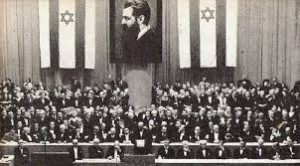
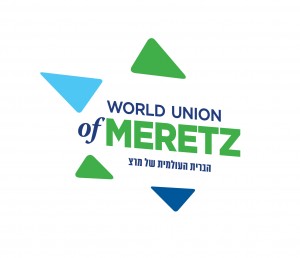
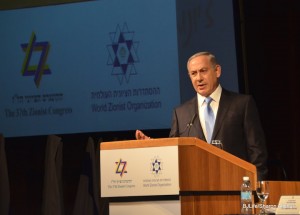
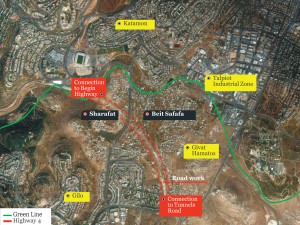
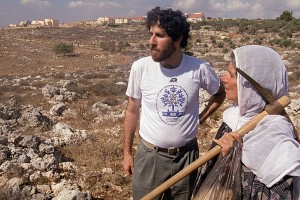

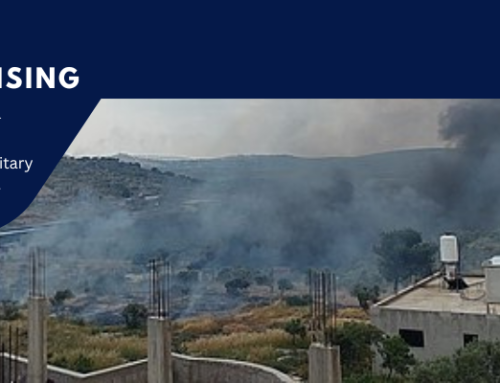
Having vowed to never again attend a WZ Congress (after being at 3, I think), I very much sympathize with what Rachel Sandalow-Ash has written about how undemocratic, unrepresentative and outmoded the World Zionist Congress is — along with the World Zionist Organization that it supposedly makes policy for.